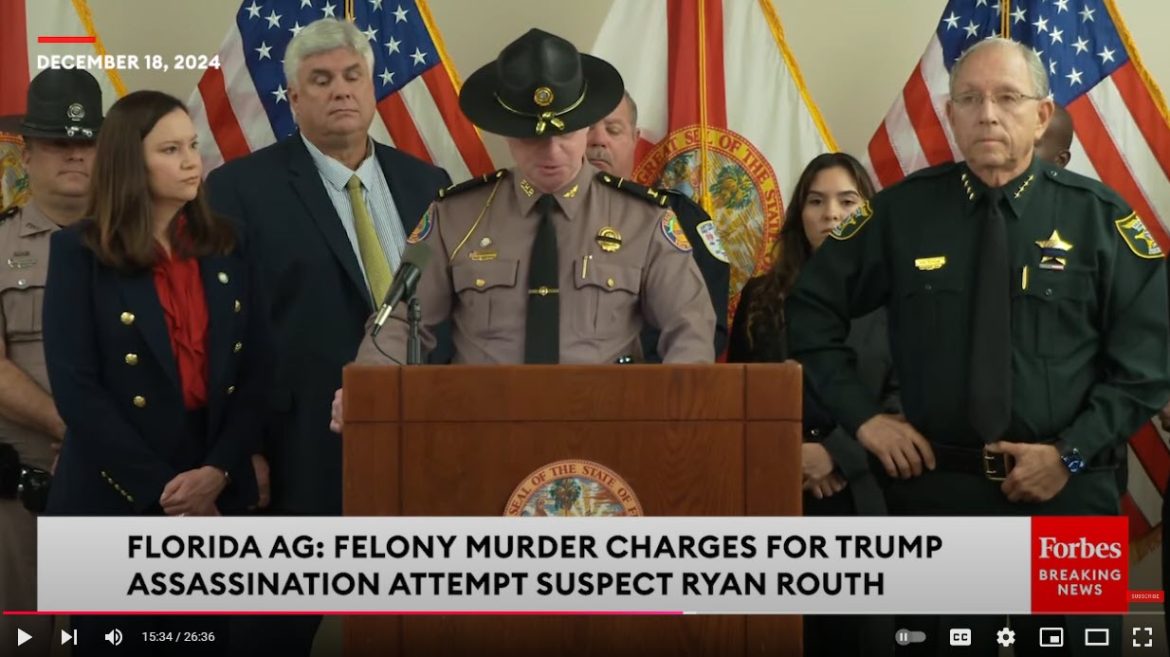Florida Attorney General Ashley Moody announces the state’s decision to pursue felony charges against Ryan Routh, the man accused of attempting to assassinate former President Donald Trump. The charges come months after Routh was arrested in September at Trump International Golf Club in West Palm Beach. He was reportedly found hiding in the bushes near the property with a rifle in his possession, raising alarms among Secret Service agents.
Moody reveals that an arrest warrant for Routh has been filed, citing frustration over what she describes as a lack of cooperation from federal authorities in handling the case. While Routh remains in federal custody awaiting trial on charges related to the alleged assassination plot, Moody insists that state-level charges are necessary to ensure justice and accountability.
The arrest stemmed from an incident in which a Secret Service agent reportedly spotted Routh behaving suspiciously near the golf club grounds, prompting immediate action. Authorities later confirmed the presence of a rifle and additional evidence suggesting premeditation. Federal prosecutors have charged Routh with multiple offenses, including attempted assassination and firearms violations.
Florida’s decision to pursue state charges is seen as a significant escalation, reflecting the seriousness of the allegations. Legal experts note that dual federal and state charges are rare but permissible, particularly in cases involving threats to public safety or national security. Moody states that the state charges aim to bolster the case and ensure no loopholes are left unaddressed.
The announcement underscores the tense political and legal environment surrounding high-profile figures like Trump. As a former president and current president-elect, Trump remains a polarizing figure, drawing heightened security concerns at his properties and events. Moody’s actions are expected to draw national attention as the case progresses, with some viewing the move as a necessary step to reinforce security protocols while others see it as politically charged.
Routh’s trial in federal court is pending, and no date has been set for state-level proceedings. If convicted on the state charges, Routh could face additional prison time beyond any federal sentence. As the investigation continues, authorities remain tight-lipped about Routh’s motivations or whether he acted alone.
The case highlights ongoing challenges in protecting prominent figures and ensuring that individuals who pose a threat are held accountable at every jurisdictional level.



